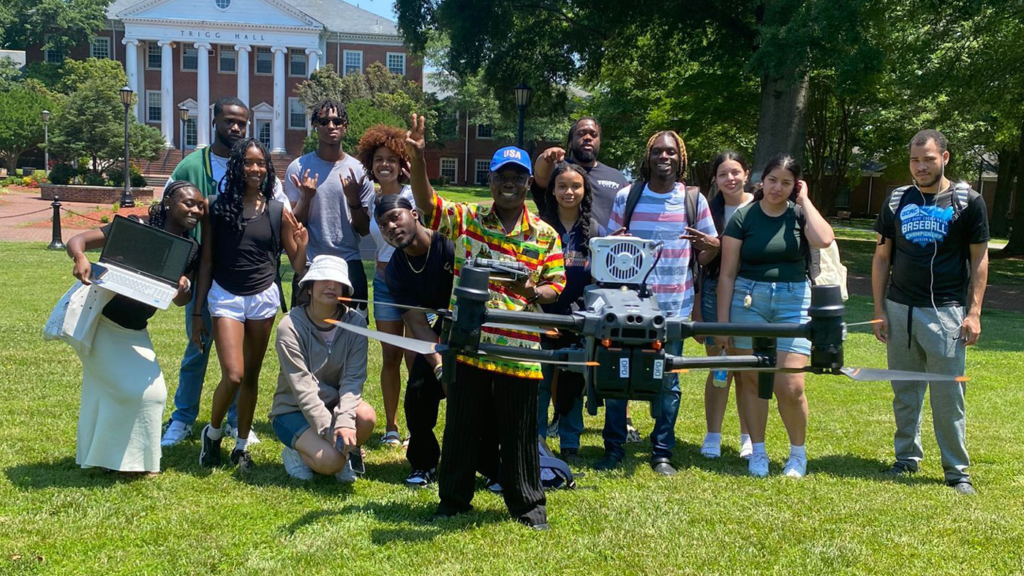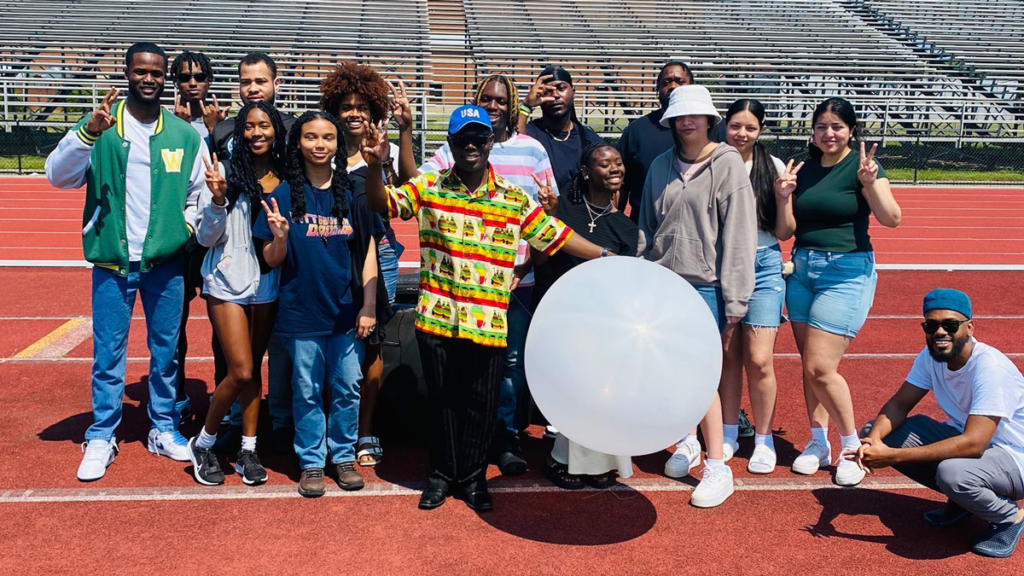By Alexia Jones, Program Manager for the MS-CC Climate Science Program
The Minority Serving-Cyberinfrastructure Consortium National Science Foundation-Funded Climate Science Program launched its inaugural undergraduate student internship program in climate science in summer 2024. The University of Maryland Eastern Shore (UMES) had the honor of being the host site for the inaugural cohort of the MS-CC Climate Science Program, welcoming 15 talented undergraduate interns from diverse backgrounds. The program aimed to inspire, educate, and empower the next generation of climate scientists through hands-on research and collaboration. This cohort was impressively diverse in areas of study, expertise, and represented one Tribal College and Universities (TCU) and ten Historically Black Colleges and Universities (HBCUs). The students came from Blackfeet Community College, which was represented by three students, and from various HBCUs including Claflin University, Delaware State University, Dillard University, Florida A&M University, Fayetteville State University, Hampton University, Morgan State University, Rust College, Shaw University, and the University of Maryland Eastern Shore, which had three students in the program. This rich representation reflects the program’s commitment to inclusivity and highlights the importance of diverse voices in the field of climate science and research technology.


Throughout the internship, the students participated in six impactful research projects, each guided by esteemed faculty mentors. Among the innovative work conducted, students monitored changes in surface water using satellite image data under the mentorship of Dr. Bautista (Florida A&M University), with interns Keana Beaufort and Femi Adebisi. Another group focused on the application of AI and machine learning to analyze atmospheric pollution and asthma cases in Baltimore, guided by Dr. Damoah (Morgan State University), and included interns Merasia Johnson, Jonathankeith Murchison, and Tre Powell III. In a project aimed at increasing participation and understanding of cyberinfrastructure in climate science, interns Hassan Abdelrahim and Juliana Guerrero-Gobert worked alongside mentors Dr. Reddy (Jackson State University).
Other projects included the analysis of historical climate data from NOAA weather stations in the Mid-Atlantic region, with interns Mike Gholson, Kaylanna Guerrero-Gobert, and Anazia Pharrams working under the guidance of Dr. Sakai and Dr. Das (Howard University). Adrian Lockwood and Anne-Marie Boseman, mentored by Dr. Theran (Florida A&M University), explored ML-based solutions for land cover classification using hyperspectral images. Lastly, interns Amir Walker, Alicia Guerrero-Gobert, and Moses Nwakwuo examined the global climate change impacts on the estuarine and coastal ocean, guided by Dr. Xia (University of Maryland Eastern Shore).
Over the course of the 10-week internship, students engaged in two weeks of training followed by eight weeks of intensive team-based research. The program was designed to cover all expenses—including airfare, housing, meals, and a generous research stipend of $700 per week for each student. The interns not only benefited from hands-on research but also enjoyed a series of enriching experiences. They participated in field trips to the Maryland Coastal Bays with Dr. Chigbu and to Howard University’s Beltsville Campus with Dr. Sakai, gaining practical insights into climate science applications. Engaging in weather balloon and drone demonstrations with Dr. Damoah allowed students to witness cutting-edge technology and data collection methods in action. The program fostered connections through consistent weekly virtual group sessions with other students and mentors that focused on holistic professional development including CV building, networking 101, and more. A highlight of the student experience was expressed as the 2024 Practical Experience in Advanced Research Computing (PEARC24) Student Program and Conference, where all 15 undergraduate interns and 2 graduate student mentors were able to attend costs covered and MS-CC staff in attendance for additional support.
The internship concluded with a hybrid event showcasing the students’ research, which allowed them to demonstrate their hard work and dedication to their peers, mentors, and the community. You can find the full program and presentation materials on the MS-CC Climate Science Program web page. This inaugural MS-CC Climate Science Program at UMES has laid the groundwork for future professionals in the climate science and cyberinfrastructure fields. By providing students with invaluable research experiences and mentorship, the program not only enhances their academic and professional journeys but also contributes to the broader dialogue on climate change and its impacts. We look forward to seeing the incredible contributions these students will make as they continue their studies and embark on their careers in this vital field.
The MS-CC is pleased to announce after a successful pilot program in 2024, the undergraduate internship program in cyberinfrastructure-enabled climate research returns for summer of 2025. This training-intensive program aims to provide undergraduate students with the opportunity to engage in computational and data-intensive climate research alongside faculty mentors and climate science researchers.
The MS-CC Interdisciplinary Training-Accessible Research Technology (IT-ART) internship program will offer students the chance to apply computational and data-intensive approaches to research areas relevant to climate science and climate change research.
